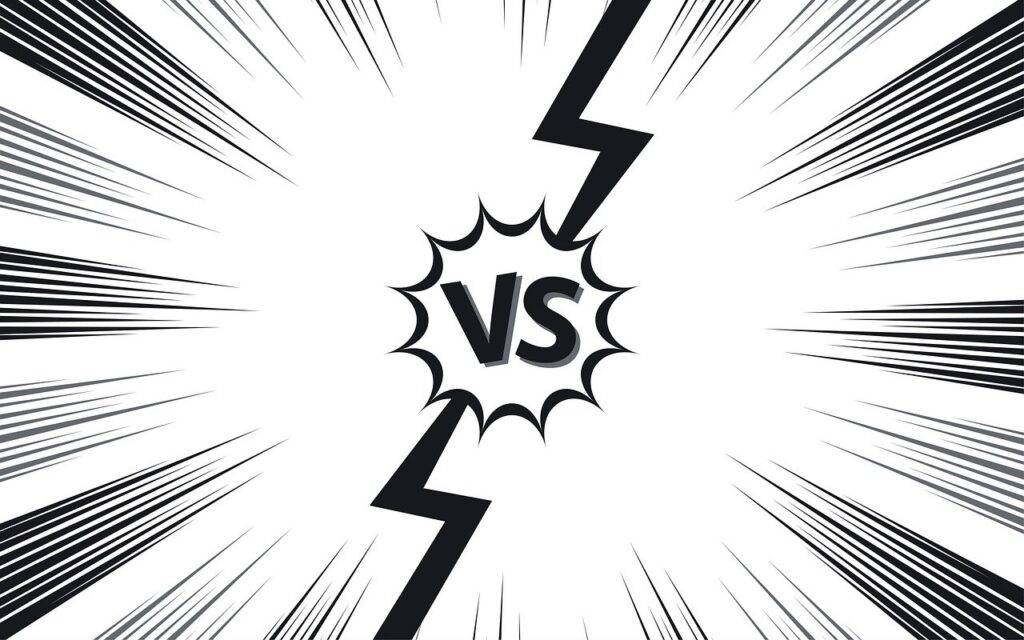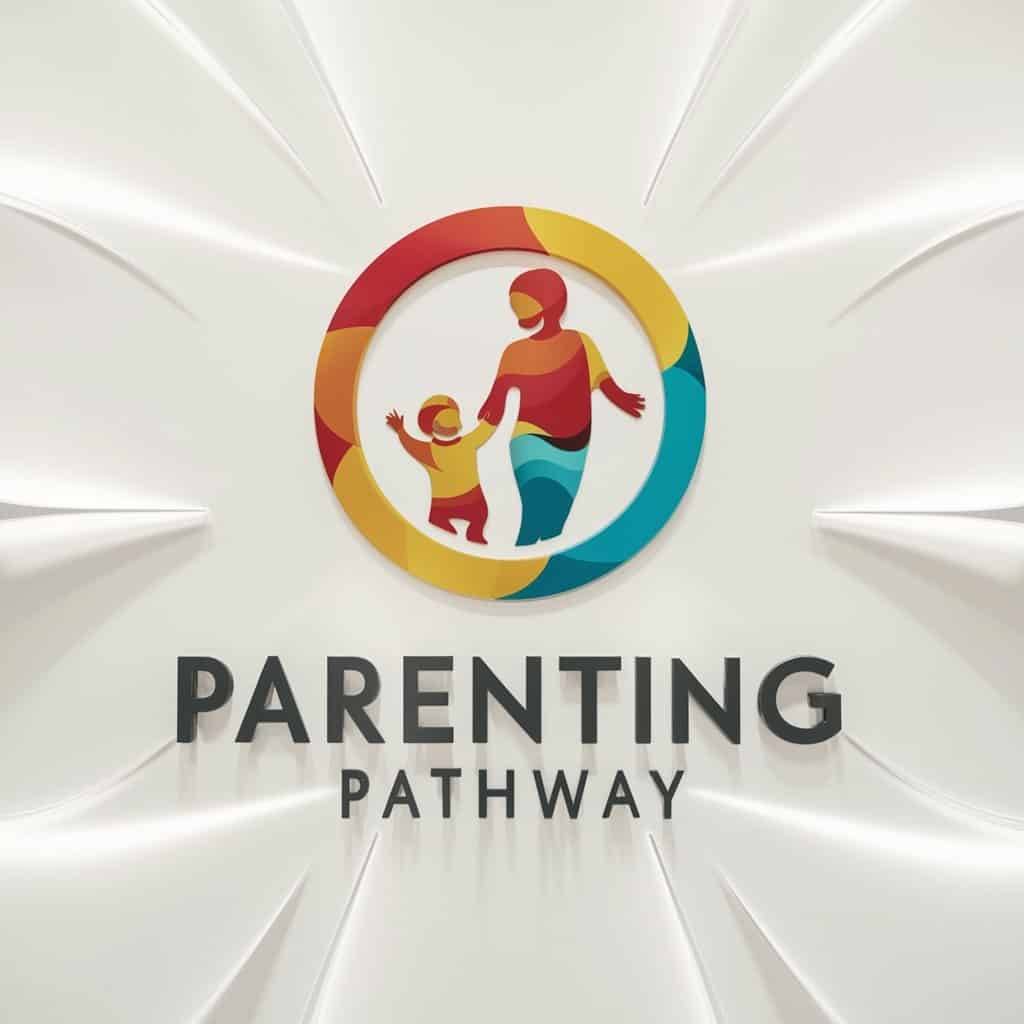Child Psychologist Vs Child Psychotherapist: Key Differences Explained
Back to Blog
Child Psychologist vs Child Psychotherapist: Understanding Professional Roles
When parents seek professional help for their child’s mental health and emotional well-being, they often encounter two distinct professional roles: child psychologists and child psychotherapists. While these professionals share a commitment to supporting children’s mental health, their approaches, training, and specific responsibilities differ significantly.
Educational Background and Qualifications
Child psychologists typically hold advanced doctoral degrees (Ph.D. or Psy.D.) in psychology, focusing extensively on scientific research, psychological assessment, and comprehensive diagnostic processes. Their training involves:
- Rigorous academic research
- Advanced statistical analysis
- Comprehensive understanding of child development
- Specialized testing and evaluation techniques
Child psychotherapists, in contrast, often possess master’s degrees in counseling, social work, or related mental health fields. Their educational path emphasizes therapeutic intervention and interpersonal healing strategies.
Diagnostic and Assessment Capabilities
Child psychologists excel in conducting detailed psychological evaluations. They can administer standardized psychological tests, comprehensively assess cognitive functioning, and diagnose complex mental health conditions. Their expertise allows them to:
- Identify learning disabilities
- Assess neurological challenges
- Provide in-depth behavioral analysis
- Develop comprehensive treatment recommendations
Psychotherapists focus more on emotional support and therapeutic intervention, utilizing counseling techniques to help children navigate emotional challenges.
Treatment Approaches and Intervention Strategies
Child psychologists often employ evidence-based interventions grounded in scientific research. They might utilize cognitive-behavioral techniques, develop structured treatment plans, and collaborate with schools and medical professionals to create holistic support systems.
Child psychotherapists primarily focus on creating safe, supportive environments where children can explore emotions, develop coping mechanisms, and work through psychological challenges. Their approaches include:
- Play therapy
- Expressive arts interventions
- Narrative therapeutic techniques
- Emotional regulation strategies
Specialized Practice Areas
Child psychologists frequently specialize in specific domains such as:
- Neuropsychological assessment
- Developmental disorders
- Academic performance evaluation
- Complex behavioral challenges
Psychotherapists tend to concentrate on emotional healing, relationship dynamics, trauma recovery, and supporting children through significant life transitions.
Professional Licensure and Regulations
Both professionals must meet strict licensure requirements. Child psychologists typically require:
- Doctoral degree completion
- Supervised clinical experience
- Comprehensive licensing examinations
- Ongoing professional development
Psychotherapists must complete master’s level education, obtain state-specific counseling licenses, and maintain professional certification standards.
Collaborative Professional Approach
Despite their differences, child psychologists and psychotherapists often collaborate, recognizing that comprehensive child mental health support requires multifaceted expertise. Their combined approaches can provide children with robust, nuanced support addressing psychological, emotional, and developmental needs.
Parents seeking professional help should consider their child’s specific requirements. Some children might benefit from comprehensive psychological assessment, while others need emotional support and therapeutic intervention.
When selecting a professional, consider factors like:
- Specific child’s needs
- Presenting psychological challenges
- Professional’s specialized experience
- Insurance coverage and accessibility
Understanding these professional distinctions empowers parents to make informed decisions, ensuring their children receive appropriate, targeted mental health support tailored to their unique developmental journey.
Educational Requirements and Training Pathways
Becoming a child psychologist or child psychotherapist requires distinct educational pathways and specialized training programs that prepare professionals to work effectively with children and adolescents. Aspiring professionals must navigate complex academic requirements and professional certifications to establish their careers in these critical mental health fields.
Academic Foundation for Child Psychologists
Child psychologists typically begin their journey with a comprehensive undergraduate degree in psychology, developmental psychology, or a closely related field. Most professionals pursue advanced degrees, with a doctoral program being the standard requirement. This usually involves:
- Bachelor’s degree (4 years)
- Master’s degree (2-3 years)
- Doctoral program (Ph.D. or Psy.D.) (4-7 years)
The doctoral program focuses intensively on child development, psychological assessment, research methodologies, and specialized interventions for children and adolescents. Accreditation from the American Psychological Association (APA) ensures rigorous training standards and comprehensive curriculum development.
Training Specifics for Child Psychologists
During their doctoral studies, aspiring child psychologists must complete extensive supervised clinical experiences. These practical training opportunities typically involve:
- Supervised clinical internships
- Research projects focused on child psychology
- Comprehensive psychological assessment techniques
- Specialized intervention strategy development
Child Psychotherapist Educational Requirements
Child psychotherapists follow a somewhat different educational trajectory. While they may enter the field with various educational backgrounds, most professionals complete:
- Bachelor’s degree in psychology, counseling, or social work
- Master’s degree in mental health counseling
- Specialized certification in child and adolescent therapy
Professional Licensing and Certification
Both child psychologists and child psychotherapists must obtain professional licensing to practice. The licensing process involves comprehensive examinations, supervised clinical hours, and ongoing professional development. State requirements vary, but generally include:
- Passing national licensing examinations
- Completing a minimum number of supervised clinical hours
- Maintaining continuing education credits
- Background checks and ethical standards compliance
Specialized Training Considerations
Advanced practitioners often pursue additional specialized training in areas such as:
- Trauma-informed care
- Developmental disorders
- Cognitive behavioral therapy techniques
- Family systems therapy
Practical Experience Requirements
Professional training extends beyond formal education. Both child psychologists and psychotherapists must accumulate significant practical experience. This typically involves supervised clinical practice, which allows professionals to develop critical skills in:
- Psychological assessment
- Diagnostic evaluation
- Treatment planning
- Therapeutic intervention strategies
Ongoing Professional Development
The field of child mental health is continuously evolving, requiring professionals to commit to lifelong learning. Successful practitioners invest in continuous professional development through:
- Advanced workshops
- Professional conferences
- Research publications
- Specialized training programs
Professionals in child psychology and psychotherapy must demonstrate exceptional dedication, compassion, and commitment to understanding the complex psychological needs of children and adolescents. Their educational journey represents a significant investment in developing the skills necessary to support young individuals’ mental health and emotional well-being.
Core Differences in Treatment Approaches
When examining the treatment approaches of child psychologists and child psychotherapists, significant distinctions emerge in their methodological strategies and professional interventions. These differences fundamentally shape how mental health professionals support children’s emotional and psychological development.
Diagnostic and Assessment Techniques
Child psychologists typically employ comprehensive psychological assessments and standardized testing to understand a child’s cognitive, emotional, and behavioral functioning. Their approach involves detailed diagnostic evaluations that help identify specific psychological conditions, developmental challenges, or neurological variations.
In contrast, child psychotherapists focus more on exploratory therapeutic techniques that emphasize emotional processing and relational dynamics. Their assessment methods are often more qualitative, involving narrative exchanges, play-based interactions, and observational techniques that reveal underlying psychological patterns.
Therapeutic Intervention Strategies
Psychologists generally utilize evidence-based interventions that are scientifically validated and structured. Their treatment plans often incorporate:
- Cognitive-behavioral strategies
- Neuropsychological rehabilitation techniques
- Quantitative behavioral modification approaches
- Detailed clinical protocol implementations
Child psychotherapists, meanwhile, adopt more flexible, relationship-centered intervention models. Their strategies prioritize emotional exploration, interpersonal healing, and creating safe therapeutic environments where children can express complex feelings through various mediums like art, play, or verbal communication.
Professional Training and Specialization
Child psychologists typically complete doctoral-level training with extensive research backgrounds, enabling them to conduct sophisticated psychological evaluations and understand intricate neurological and developmental processes. Their training emphasizes scientific methodology and comprehensive diagnostic capabilities.
Psychotherapists often complete master’s level training with deeper emotional intelligence and relational skill development. They specialize in creating therapeutic alliances that facilitate emotional healing and psychological growth through empathetic, context-sensitive approaches.
Treatment Duration and Approach
Psychological interventions led by child psychologists tend to be more time-limited and goal-oriented. They frequently design targeted treatment plans addressing specific diagnosed conditions with measurable outcomes and structured progression.
Psychotherapeutic approaches are generally more open-ended and process-oriented. These professionals prioritize long-term emotional regulation, relationship-building, and creating sustainable coping mechanisms that evolve alongside the child’s developmental journey.
Specialized Intervention Areas
Child psychologists excel in addressing complex neurological conditions, learning disabilities, and developmental disorders. Their expertise encompasses comprehensive diagnostic assessments and specialized intervention strategies for conditions like ADHD, autism spectrum disorders, and cognitive processing challenges.
Child psychotherapists specialize in emotional trauma, attachment issues, family dynamics, and relational challenges. They provide profound emotional support for children experiencing anxiety, depression, grief, or interpersonal difficulties.
Collaborative Professional Approaches
Despite their differences, both professionals recognize the importance of collaborative care. They often work interconnectedly, with psychologists providing diagnostic insights and psychotherapists offering nuanced emotional support.
Effective child mental health interventions frequently require integrated approaches where diagnostic understanding meets compassionate therapeutic engagement. This collaborative model ensures children receive holistic, comprehensive support addressing both psychological and emotional dimensions.
Technological and Contemporary Considerations
Modern child psychology and psychotherapy increasingly incorporate digital assessment tools, teletherapy platforms, and innovative intervention technologies. Both professions adapt to emerging research, technological advancements, and evolving understanding of childhood psychological development.
Understanding these core differences helps parents, educators, and healthcare professionals make informed decisions about selecting appropriate mental health support for children experiencing psychological or emotional challenges.
Diagnostic and Therapeutic Intervention Strategies
When addressing complex psychological challenges in children, professionals employ a range of sophisticated diagnostic and therapeutic intervention strategies designed to understand, assess, and support young patients’ mental health and developmental needs.
Comprehensive assessment begins with meticulous diagnostic techniques that involve multiple evaluation methods. Clinicians utilize standardized psychological testing, behavioral observations, developmental screenings, and detailed interviews with children, parents, and caregivers to gather holistic information about a child’s psychological functioning.
Multidimensional Assessment Approaches
Effective intervention strategies require a nuanced understanding of a child’s unique psychological landscape. Professionals typically implement integrated assessment protocols that consider:
- Cognitive functioning and intellectual capabilities
- Emotional regulation and behavioral patterns
- Social interaction skills
- Family dynamics and environmental influences
- Neurological and developmental considerations
Targeted Intervention Framework
Once comprehensive diagnostic insights are obtained, clinicians develop personalized intervention strategies tailored to each child’s specific needs. These strategies often incorporate evidence-based approaches that address underlying psychological challenges while promoting healthy developmental trajectories.
Cognitive-Behavioral Intervention Techniques
Cognitive-behavioral interventions represent a powerful therapeutic approach focusing on modifying maladaptive thought patterns and behaviors. Professionals use age-appropriate techniques such as:
- Play therapy for younger children
- Narrative therapy techniques
- Skill-building workshops
- Interactive problem-solving exercises
- Emotional regulation training
Family-Centered Therapeutic Approaches
Recognizing the critical role of family systems, intervention strategies frequently involve collaborative approaches that engage parents and caregivers. This holistic methodology ensures consistent support across different environments and promotes sustained psychological wellness.
Advanced Therapeutic Modalities
Modern intervention strategies leverage sophisticated therapeutic modalities that extend beyond traditional counseling methods. These innovative approaches incorporate neurological insights, technological tools, and integrated treatment protocols.
Neurodevelopmental Intervention Strategies
For children with complex neurodevelopmental conditions, professionals design intricate intervention strategies addressing specific neurological challenges. These strategies might include specialized sensory integration techniques, neuroplasticity-focused interventions, and targeted cognitive rehabilitation programs.
Technology-Enhanced Treatment Protocols
Contemporary intervention strategies increasingly integrate digital technologies to enhance therapeutic outcomes. Virtual reality exposure therapy, interactive digital platforms, and teletherapy options provide flexible, engaging treatment modalities that resonate with technologically native younger generations.
Specialized Intervention Considerations
Different psychological conditions necessitate unique intervention approaches. Professionals must adapt their strategies to address specific challenges such as:
- Autism spectrum disorders
- Attention deficit hyperactivity disorder
- Anxiety and mood disorders
- Trauma-related psychological conditions
- Learning disabilities
Collaborative Professional Network
Successful intervention strategies often require interdisciplinary collaboration. Psychologists, pediatricians, occupational therapists, and educational specialists work together to create comprehensive support systems that address children’s multifaceted psychological needs.
By implementing sophisticated, personalized diagnostic and therapeutic intervention strategies, mental health professionals can effectively support children’s psychological development, helping them navigate complex emotional landscapes and build resilient, healthy foundations for future growth.
Specialized Areas of Practice and Patient Care
When exploring the nuanced world of child mental health support, professionals focus on delivering targeted care through distinct approaches. Child psychologists and child psychotherapists each bring unique skills and methodologies to supporting young patients’ emotional and psychological well-being.
Professional Training and Educational Background
Child psychologists typically complete doctoral-level training in psychology, which involves comprehensive research-based education and extensive clinical preparation. Their academic journey includes advanced coursework in developmental psychology, cognitive assessment, and statistical analysis of human behavior.
Child psychotherapists often hold master’s degrees in counseling, clinical psychology, or social work. Their educational pathway emphasizes therapeutic intervention techniques, emotional support strategies, and interpersonal communication skills specifically tailored to children’s developmental stages.
Assessment and Diagnostic Approaches
Psychologists generally excel in comprehensive diagnostic evaluations. They utilize standardized psychological tests, cognitive assessments, and detailed behavioral observations to create precise diagnostic profiles. These assessments help identify specific mental health conditions, learning disabilities, and developmental challenges.
Psychotherapists concentrate more on emotional healing and behavioral modification. Their diagnostic approach involves in-depth conversational techniques, play therapy methods, and emotional exploration designed to understand underlying psychological dynamics.
Treatment Methodologies
Psychological treatment strategies differ significantly between these professionals:
- Psychologists often implement structured intervention plans
- Psychotherapists focus on emotional processing and healing
- Diagnostic testing is more prevalent in psychological practice
- Therapeutic counseling is central to psychotherapy
Clinical Practice Specializations
Child psychologists might specialize in areas such as:
- Neuropsychological assessments
- Academic performance evaluations
- Behavioral disorder diagnostics
- Cognitive functioning analysis
Child psychotherapists typically concentrate on:
- Emotional trauma recovery
- Family relationship counseling
- Anxiety and depression management
- Behavioral modification techniques
Treatment Duration and Approach
Psychological interventions tend to be more structured and time-limited, often focusing on specific diagnostic objectives. Psychotherapeutic approaches are generally more fluid, emphasizing ongoing emotional support and gradual behavioral transformation.
Therapeutic Techniques
Psychologists might employ:
- Cognitive behavioral techniques
- Neuropsychological rehabilitation
- Standardized intervention protocols
- Comprehensive behavioral analysis
Psychotherapists typically utilize:
- Narrative therapy
- Play-based emotional exploration
- Expressive arts interventions
- Relationship-centered healing strategies
Patient Interaction Dynamics
Child psychologists maintain a more professional, assessment-oriented interaction. Their sessions often involve structured activities designed to evaluate specific psychological parameters.
Psychotherapists create a more nurturing, emotionally supportive environment. Their interactions prioritize building trust, facilitating emotional expression, and providing compassionate guidance.
Professional Licensing and Credentials
Psychologists require doctoral-level credentials and state licensure, involving rigorous examination and supervised clinical experience. Psychotherapists typically need master’s level certification and ongoing professional development requirements.
Collaborative Care Approach
Both professionals recognize the importance of interdisciplinary collaboration. They frequently work alongside pediatricians, educators, and family counselors to provide comprehensive support for children’s mental health needs.
Understanding these nuanced differences helps parents and caregivers make informed decisions about seeking appropriate mental health support for children. Each professional brings valuable skills to supporting young individuals’ psychological well-being.
Key Takeaway:
Key Takeaway: Child Psychologist vs Child Psychotherapist – Navigating Professional Distinctions
Understanding the nuanced differences between child psychologists and child psychotherapists is crucial for parents, educators, and healthcare professionals seeking the most appropriate mental health support for children. While both professionals are dedicated to supporting children’s emotional and psychological well-being, their approaches, training, and specific areas of expertise vary significantly.
Child psychologists typically hold advanced doctoral degrees (PhD or PsyD) and possess a broader scientific foundation in understanding child development, psychological assessment, and comprehensive diagnostic evaluation. They are uniquely trained to conduct in-depth psychological testing, diagnose complex mental health conditions, and develop comprehensive treatment plans. Their approach is more research-driven and scientifically grounded, allowing them to analyze intricate psychological patterns and behavioral challenges.
In contrast, child psychotherapists often have master’s-level training and focus more intensively on therapeutic interventions and emotional support. Their primary strength lies in providing direct counseling, creating safe emotional spaces for children to explore their feelings, and implementing targeted therapeutic techniques. They excel in developing interpersonal connections and helping children navigate emotional challenges through talk therapy, play therapy, and other relationship-based interventions.
The educational pathways for these professionals differ substantially. Psychologists undergo more extensive academic training, including advanced research methodologies and comprehensive psychological assessment techniques. Psychotherapists concentrate more on clinical practice, counseling skills, and immediate therapeutic engagement.
Diagnostic capabilities also distinguish these professionals. Child psychologists can provide formal psychological evaluations, diagnose specific mental health disorders, and recommend comprehensive treatment strategies. Psychotherapists typically work within established diagnostic frameworks, focusing on therapeutic support and emotional healing.
Specialized practice areas further highlight their unique contributions. Psychologists might specialize in neuropsychological assessments, developmental disorders, or complex behavioral interventions. Psychotherapists often focus on specific therapeutic modalities like trauma-informed care, family systems therapy, or emotional regulation techniques.
Ultimately, both child psychologists and child psychotherapists play critical roles in supporting children’s mental health. The choice between them depends on the specific needs of the child, the complexity of their psychological challenges, and the desired therapeutic approach. Parents and caregivers should carefully assess individual requirements and consult professionals to determine the most appropriate mental health support.
Collaborative approaches that integrate both psychological assessment and therapeutic intervention often yield the most comprehensive results, ensuring holistic support for children’s emotional and psychological development.
Conclusion
Choosing between a child psychologist and a child psychotherapist depends on a child’s specific mental health needs and the complexity of their emotional challenges. Both professionals play crucial roles in supporting children’s psychological well-being, but their approaches, training, and specific expertise differ significantly.
Parents and caregivers should carefully consider the unique strengths of each professional when seeking help for a child. A child psychologist typically offers more comprehensive diagnostic assessments and research-based interventions, while a child psychotherapist provides deeply personalized emotional support and therapeutic healing.
The decision isn’t about selecting a superior professional, but rather finding the right match for a child’s individual requirements. Some children might benefit from a psychologist’s structured diagnostic approach, while others may need the nuanced emotional support of a psychotherapist. In many cases, collaborative care between these professionals can provide the most comprehensive support.
Understanding the distinctions in educational background, treatment methodologies, and specialized practice areas empowers families to make informed decisions. Each professional brings valuable skills to child mental health care, focusing on supporting children’s emotional development, addressing psychological challenges, and helping them build resilience.
Ultimately, the most important factor is finding a compassionate, skilled professional who can connect with the child, understand their unique needs, and provide effective, age-appropriate support. Whether working with a psychologist or psychotherapist, the goal remains consistent: helping children navigate their emotional landscape and develop healthy psychological strategies for life.




Leave a Reply